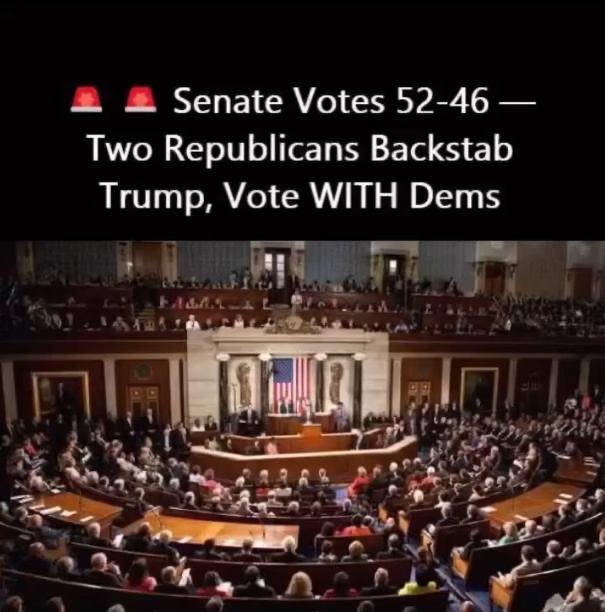
In a move that’s stirring reactions from both sides of the political aisle, the U.S. Senate has officially confirmed Kelly Loeffler as the new Administrator of the Small Business Administration (SBA).
The final vote? A narrow 52–46 margin.
While Loeffler’s confirmation expands the Trump-era cabinet to 18 members, the decision underscores not just growing political tensions but also the pivotal role small businesses will play in shaping the post-pandemic American economy.
A Rare Moment of Bipartisanship
In a striking deviation from party-line voting, Democratic Senator Jacky Rosen of Nevada crossed the aisle and joined 51 Republicans to support Loeffler’s appointment.
Rosen’s vote caught attention, especially since she has often voiced concern about transparency and leadership at the SBA. Her decision to back Loeffler suggests a willingness to set aside party politics in favor of what she described as “competent and focused small business advocacy.”
“I may not agree with everything,” Rosen said in a brief statement, “but our small businesses need stability. They need a leader.”
Her sentiment resonated with small business owners in her home state — particularly those still recovering from pandemic-era losses, inflationary pressures, and interest rate hikes that have made borrowing tougher.
Who Is Kelly Loeffler?
For those unfamiliar, Kelly Loeffler is no stranger to politics or high-stakes decision-making.
A former U.S. Senator from Georgia, Loeffler was appointed to the Senate in 2019 by Governor Brian Kemp. She held the seat for roughly a year before losing a high-profile runoff election in 2021.
Before politics, Loeffler had a successful business career. She served as CEO of Bakkt, a cryptocurrency firm, and held executive roles at Intercontinental Exchange — the parent company of the New York Stock Exchange.
Her experience in the private sector — particularly in finance and technology — was a key selling point for Republicans advocating her SBA appointment.
Supporters argue her business acumen and boardroom background make her well-suited to navigate the complex challenges small businesses face today, including supply chain disruptions, workforce shortages, and access to capital.
Opposition from Democrats — And Some Republicans
Despite the confirmation, not everyone was on board.
Most Democrats voted against Loeffler, citing concerns about her past political stances and potential conflicts of interest, especially given her financial ties to major corporations and her controversial stock trades during her Senate tenure.
Senator Elizabeth Warren, who has long been a vocal advocate for small business protections, criticized the appointment sharply.
“Small business leaders deserve an advocate, not a Wall Street insider,” Warren said during the floor debate. “The SBA needs a servant of the people, not someone who’s used public office for personal gain.”
Even within Republican ranks, a few senators chose not to vote, a subtle sign of disapproval or political hesitation. While none formally opposed Loeffler on the record, their absence was noted — and speculated on.
Why the SBA Role Matters Now More Than Ever
The Small Business Administration isn’t a flashy post. It doesn’t dominate headlines the way the Department of Defense or State does.
But its role is deeply impactful — especially now.
The SBA is responsible for managing billions of dollars in loans, grants, and technical support programs. These services are essential to the 33 million small businesses that form the backbone of the U.S. economy.
From corner diners and mom-and-pop hardware stores to tech startups and rural manufacturing hubs, small businesses generate nearly half of all private-sector jobs in America.
And in the wake of COVID-19, those businesses are still trying to recover. Some face permanent closures, others are dealing with labor shortages, and many are drowning in debt from Paycheck Protection Program loans and inflation-related expenses.
The SBA’s leader plays a critical role in deciding who gets support — and how fast that help comes.
Loeffler’s Agenda: What We Know So Far
Though newly confirmed, Loeffler has already laid out a general vision for her tenure.
She’s promised to focus on streamlining SBA loan approvals, increasing access to funding for minority- and women-owned businesses, and modernizing the agency’s technology infrastructure.
She’s also signaled a desire to revamp disaster response programs — an area where the SBA faced scrutiny during the pandemic for delays and inconsistencies in loan disbursement.
“Our small businesses need to be empowered, not entangled in red tape,” Loeffler said in a brief statement following her confirmation. “I plan to work day and night to ensure America’s entrepreneurs have the tools they need to succeed.”
Reactions from the Small Business Community
The response among small business owners has been mixed.
Some see Loeffler’s background in finance as a potential strength — a sign that she’ll understand the bottom-line realities entrepreneurs face.
Others remain skeptical, worried that her corporate ties may overshadow the needs of true small business operators.
“I’m just hoping she doesn’t forget about the little guys,” said Rick Morales, who owns a dry cleaning business in Kansas City. “We’re not hedge funds. We’re just trying to pay the bills and keep folks employed.”
Small business advocacy groups are watching closely.
The National Federation of Independent Business (NFIB) issued a cautious statement of support, noting that Loeffler’s experience “could help restore confidence and drive innovation,” but called for increased transparency.
Meanwhile, groups representing minority-owned businesses urged Loeffler to make good on her promise to address systemic lending gaps and improve equity in SBA programs.
Political Implications Beyond the SBA
Loeffler’s appointment also carries significant political weight.
Some analysts see it as a strategic move by GOP leadership to keep Loeffler relevant in national politics, possibly paving the way for a future run for office — perhaps even another Senate seat or a gubernatorial bid in Georgia.
Her confirmation gives her a national platform, and if she succeeds in improving SBA efficiency and outreach, it could rehabilitate her public image after her bruising Senate loss in 2021.
At the same time, Democrats may seize on her record and any future missteps to reinforce arguments about corporate influence in federal agencies.
What Comes Next
Kelly Loeffler now steps into a role that is more influential — and more visible — than ever before.
She’ll be expected to navigate a complex post-pandemic economy, foster bipartisan cooperation, and deliver results for the millions of small businesses relying on SBA support to stay afloat.
Her tenure will be closely watched — not just for what it means to entrepreneurs across the country, but also for what it signals about the future of American economic policy.


